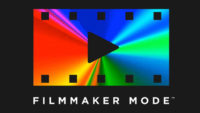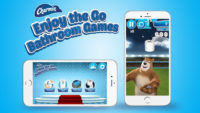All About You: CES Products Highlight Personal Experiences
January 13, 2020
The display of Sony’s 360 Reality Audio at CES 2020 just might summarize the entire show: a personalized experience in a 360-degree spherical sound field, exactly as intended by artists and creators. Listeners optimize Sony’s object-based spatial audio technology with an app that captures an image and then analyzes their ears. With the app connected to one of the select new Sony headphones and a premium music service such as Deezer, nugs.net, and TIDAL they will hear individual instruments, vocals, and even the audience placed in the sound field.
A working prototype of 360 Reality Audio for a home theater soundbar was also shown. It does require being in the sweet spot, but that spot was pretty sweet and required no ear measurements.

In another example of personalization, Jabra announced a Q2 2020 firmware update for its highly rated Elite 75t earbuds that enables Jabra MySound. Individualized audio based on user’s personal hearing profile is made possible using the Jabra Sound+ app that, according to the press release, tests their hearing profile. Following that, the music audio is optimized for a truly individualized experience that calibrates the headphones based on each user’s unique profile.
After so many years of promises about the wonders of technology, CES 2020 revealed actual products that really offer great personal experiences. This was also a great year for content creators. As the 360 Reality Audio demonstrates, here is a product that delivers the artist’s creation exactly as intended because it tailors the playback to the unique characteristics of the listener’s ears.
LG Electronics’ adoption of Filmmaker Mode and its inclusion in all 4K and higher displays gives viewers the opportunity to see movies and television as they were designed to be seen. According to Creative Planet, the UHD Alliance announced that Filmmaker Mode “is designed to show films with as little motion smoothing or post-processing as possible,” and will also be coming to TVs from Kaleidescape, Panasonic, Samsung, TP Vision and Vizio. (The UHD Alliance posted a video on YouTube that features industry support for Filmmaker Mode.)

For LG and Samsung, personalization is an offer of convenience born of a time when individuals watch and subscribe to a growing number of sources. Their new televisions keep track of viewing habits and services, storing most of the personally identifiable information locally, to make better recommendations and help viewers find whatever they are looking to watch. As ETC reported earlier, both of these companies are now consumer lifestyle brands, their products extending well beyond TV rooms. As such, they are emerging as digital gateways and are already beginning to market themselves as such.
Marketing tracks at CES reflected an understanding that there are values and limitations to personalization. Just in case any don’t, there was presence and comment from federal officials, mostly the administration but very few members of Congress. As Politico.com’s first CES pop-up newsletter reported, ”Policy-focused discussions were in the minority — and largely lacking those critical voices that have fueled the backlash … Politicians calling for breakups? They weren’t here.”
Cars have been a personal statement for generations, but the connected cars of the not-so-distant future, enabled by 5G networks and edge computing, drive a new dimension in transportation.
Over at the Sands Expo, smart home, fitness, health & wellness, family and education exhibits were all about the individual — during waking hours and sleep. Procter & Gamble had fun with its bathroom-oriented #GoLab projects, tagging its toilet paper robot and a fragrance device with #enjoythego. There is even an app for that. Toto brought a smile with its Tornado Flush feature. For a truly smart home there was Kohler’s Intelligent Toilet.

The fitness, health, and wearables categories suggest that people are very willing to share data and information when the result is better wellness. These areas at the show keep growing, along with a surge in products to help the aging to live safely at home. The product lines have moved well past sports watches and activity trackers.
Digital Therapeutics (DTx) is distinct from digital health in that its products’ primary function is to deliver therapeutic interventions via software to the patient to prevent, manage and treat medical disorders or disease. More than half of all respondents in a 2019 Accenture survey reported by CTA expect digital capabilities from health care providers.
Few things are more personal than sex. After a controversial decision in 2019 to rescind an award and ban the exhibitor, Lora DiCarlo, a dozen or so sex tech companies were represented on the floor. Here again the theme of personalization was apparent, for these most personal of products differentiate themselves by the degree to which they respect and adjust to what makes each customer different. One product from OhMiBod even has a Music Mode that connects with any iPod, iPhone or MP3 player to give, in the words of the product description, “a unique dual sensory experience.”

No Comments Yet
You can be the first to comment!
Sorry, comments for this entry are closed at this time.